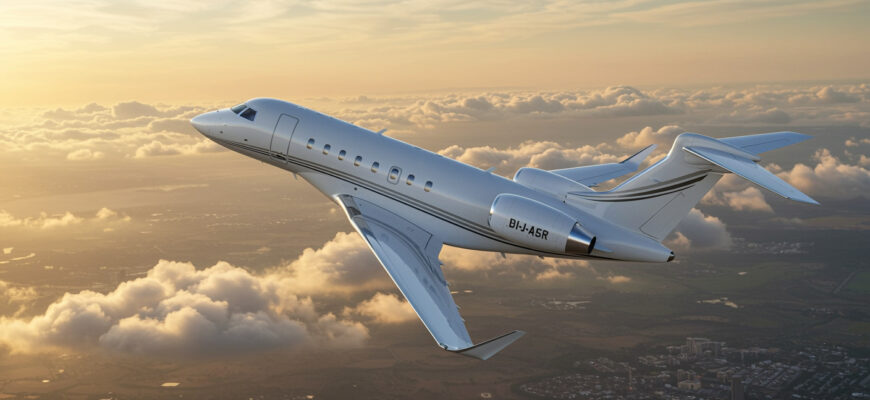When flying private jets to or from Bamako, Mali’s capital, travelers tap into a unique blend of opportunity and practicality. Bamako stands not just as the political heart of Mali but also as a key hub for West African business and diplomacy. Its position on the Niger River and growing importance in regional commerce make it a go-to destination for executives, diplomats, and high-net-worth individuals who value efficiency, privacy, and security in their air travel.
Private jet charters to Bamako frequently serve those on high-stake business missions, government delegations, or luxury travelers looking to avoid the constraints of commercial flights. The city’s somewhat remote location from major global jet routes means that private aviation provides unmatched flexibility. Whether arriving from European capitals or other African business centers, travelers appreciate the ability to tailor schedules and minimize transit times.
Planning a private jet trip involving Bamako demands attention to several factors. The infrastructure here differs from larger global hubs, so confirming aircraft compatibility with runway limits is key. Ground services, while present, may vary in availability compared to larger airports, affecting fueling, maintenance, and passenger transfers. Awareness of regional security considerations and local customs clearance procedures rounds out the necessary preparation for a seamless experience.
Bamako’s Aviation Infrastructure and Practicalities
Bamako’s primary gateway for international private flights is Modibo Keita International Airport (BKO), located about 15 kilometers south of the city center. It’s the sole airport equipped to handle most private aircraft entering and exiting Mali. Originally built in the 1970s, BKO has seen significant modernization in recent years, enhancing its capabilities for general aviation, although it can’t match the luxe terminals found in global mega-hubs.
The main runway spans approximately 5,001 feet, surfaced with asphalt, making it suitable for a range of aircraft—from small turboprops and light jets up to many midsize and some heavy jets. However, this length does impose some limits. Very large private jets, especially those carrying full loads in hot and high conditions, may face weight or payload restrictions to safely operate here. It’s essential to coordinate closely with your charter provider to verify that your chosen aircraft can perform optimally given local runway and climate factors.
Support services at BKO airport are fairly comprehensive by regional standards. Fueling options for jet fuel and AvGas are available, along with hangar space and basic aircraft maintenance. However, top-tier amenities like fixed-base operator (FBO) lounges are modest, so plan accordingly if comfort during ground time is a priority.
Once on the ground, travelers find several convenient ground transportation choices. Private car services and limousines can be arranged in advance to ensure smooth transfers to city hotels and business districts. Rental vehicles are offered, though they are less popular given the local driving conditions and traffic. Roads around Bamako vary in quality—paved highways connect the airport to downtown, typically a 25- to 35-minute drive depending on traffic. It’s wise to budget extra time for transit, especially during peak hours or rainy seasons when roads can become challenging. Negotiation skills for taxis come in handy as metered fares are uncommon and pricing agreements usually happen upfront.
Suitable Aircraft Types for Bamako Region
Matching the right aircraft with Bamako’s airport conditions is crucial for a smooth private jet experience. BKO accommodates various categories of jets, each with benefits and drawbacks depending on your travel needs.
- Light jets, like the Citation CJ series or Phenom 300, comfortably operate from BKO’s runway. They are ideal for groups up to seven passengers on short to mid-range flights. Pros include excellent runway performance and agility, but they have limited luggage space and shorter range.
- Midsize jets, including the Hawker 800XP or Legacy 500, combine greater cabin comfort with extended range and better luggage capacity. These aircraft fit well within runway constraints while offering a balance between cost-efficiency and passenger comfort. They work especially well for regional hops throughout West Africa or flights to European hubs.
- Heavy jets and long-range aircraft, such as the Gulfstream G550, Bombardier Global 6000, or Dassault Falcon 7X, can be chartered for intercontinental flights. These jets offer luxury, space, and extra range but may face some operational weight restrictions at BKO due to runway length and heat. Careful payload planning and fuel calculations are necessary to avoid limitations on passenger count or baggage.
Popular private jet models often chosen for Bamako service include the Citation XLS for light jets, the Legacy 600 among midsize options, and the Gulfstream G450 or Bombardier Global Express for heavier classes. Helicopters, such as the Bell 429, also offer a flexible way to connect quickly to the city or nearby regions for executives valuing speed and versatility beyond fixed-wing aircraft.
In short, analysts and operators highly recommend selecting an aircraft that aligns with your mission profile—whether it’s a quick regional hop with a small entourage or a long-haul luxury experience requiring spacious cabins and maximum range. Confirming the runway performance and ground infrastructure compatibility beforehand ensures your jet charter matches Bamako’s unique aviation landscape perfectly.
Cost Breakdown and Charter Pricing Overview
Ever wonder what it really costs to charter a private jet to or from Bamako? Pricing isn’t just a number pulled from thin air—it’s shaped by several key factors that can make your quote fluctuate significantly. Flight distance plays a big role: longer routes mean more fuel, crew hours, and maintenance wear. The type of aircraft is another heavyweight in pricing—lighter jets with fewer seats are cheaper, while ultra-long-range jets or VIP airliners come with a premium tag, sometimes doubling or tripling the base cost.
Landing fees and handling charges at Modibo Keita International Airport may surprise newcomers. While Bamako’s ground services have improved after recent upgrades, fees for landing, parking, and ramp handling still apply and vary depending on aircraft size. The airport’s 5,001-foot runway can typically accommodate small to medium business jets without extra cost, but larger jets might face restrictions pushing costs upward.
When looking at typical charter prices, flying from Istanbul to Bamako on a heavy jet starts around €66,000, while upgrading to a long-range jet can push that close to €87,000. For group travel or official delegations needing VIP airliners, rates can climb beyond €137,000 one-way. Shorter regional routes naturally fall on the lower end but rarely drop below several thousand euros per hour of flight time.
Additional expenses can quietly add up. Expect overnight fees if the jet or crew has to stay longer than planned, especially since Bamako isn’t a major crew base and may require longer rest periods. Crew expenses, including per diems and repositioning costs, also add to the bottom line. Customs and handling fees vary; Mali’s rigorous procedures demand that these are factored in early to avoid surprises when landing.
It’s tempting to go with global brokers who promise access to fleets worldwide, but direct local operators can offer sharper pricing and smoother coordination on the ground. Local operators know Bamako inside out, handling local regulations and logistics efficiently. On the flip side, brokers provide more aircraft options but often include a markup for their coordination role. Comparing quotes side-by-side while verifying exactly what’s included—fuel, taxes, handling—is the smartest way to spot a fair deal.
Top Local Operators and International Charter Brokers Serving Bamako
Looking for someone trustworthy to handle your private jet charter in Bamako? Mali’s aviation scene features a handful of solid local operators who understand the nuances of flying into Modibo Keita International while offering competitive service. Flapper is a standout Mali-based operator with a fleet ranging from jets to helicopters, and a team on the ground providing tailored experiences from quick city tours to longer trips.
Outside Mali, renowned brokers like Jettly, BlackJet, and PrivateFly frequently arrange charters into Bamako, leveraging global networks to offer diverse aircraft choices. These brokers often partner with local ground handlers to navigate airport protocols, but that middleman role can add complexity and cost.
Choosing the right provider hinges on research—request references, verify certifications, and check reviews from other flyers who know Bamako’s unique environment. Reliable pilots familiar with regional challenges and operators with fixed local teams are essential. Clients should also scrutinize contracts carefully for hidden fees, cancellation terms, and insurance coverage to avoid costly surprises.
Booking smooth charters means tackling a few smart moves early: lock in your aircraft weeks ahead to beat limited availability, especially during regional events or holidays. Ask your operator about minimum crew rest times given Mali’s location, and confirm that all ground services—fuel, customs, catering—are arranged before departure. Clear communication and written agreements make the difference between seamless journeys and last-minute headaches.
Cultural Insights and Security Considerations in Mali
High-end travelers arriving in Mali can expect warm hospitality steeped in rich cultural traditions. Malians highly value respect for local customs—dressing modestly and displaying polite gestures go a long way. Greeting with a handshake and using a few basic French phrases can open doors faster than flashy arrivals. Unlike global luxury hubs, Bamako’s high-end service is warm but understated; expect authenticity over opulence.
Security remains an important focus. Regional conflicts in northern Mali have led to fluctuating travel advisories, meaning private jet operators coordinate closely with local authorities for safe transit. Arrivals and departures at Modibo Keita International require patience through thorough customs and immigration checks. Ground handling teams often liaise with police and security agencies to ensure smooth, secure processing.
Travelers should always:
- Verify current security briefings well ahead of travel.
- Coordinate with experienced local ground agents who know the paperwork and protocols.
- Allow buffer time around flights for any unexpected delays due to regional events or weather.
Bamako may not be a standard stop for most travelers, but with the right prep and respect for its complex environment, private jet trips can be both safe and culturally enriching. The city’s vibrant markets, music scenes, and artisan workshops offer unforgettable experiences that reward visitors willing to engage beyond the airport gates.









